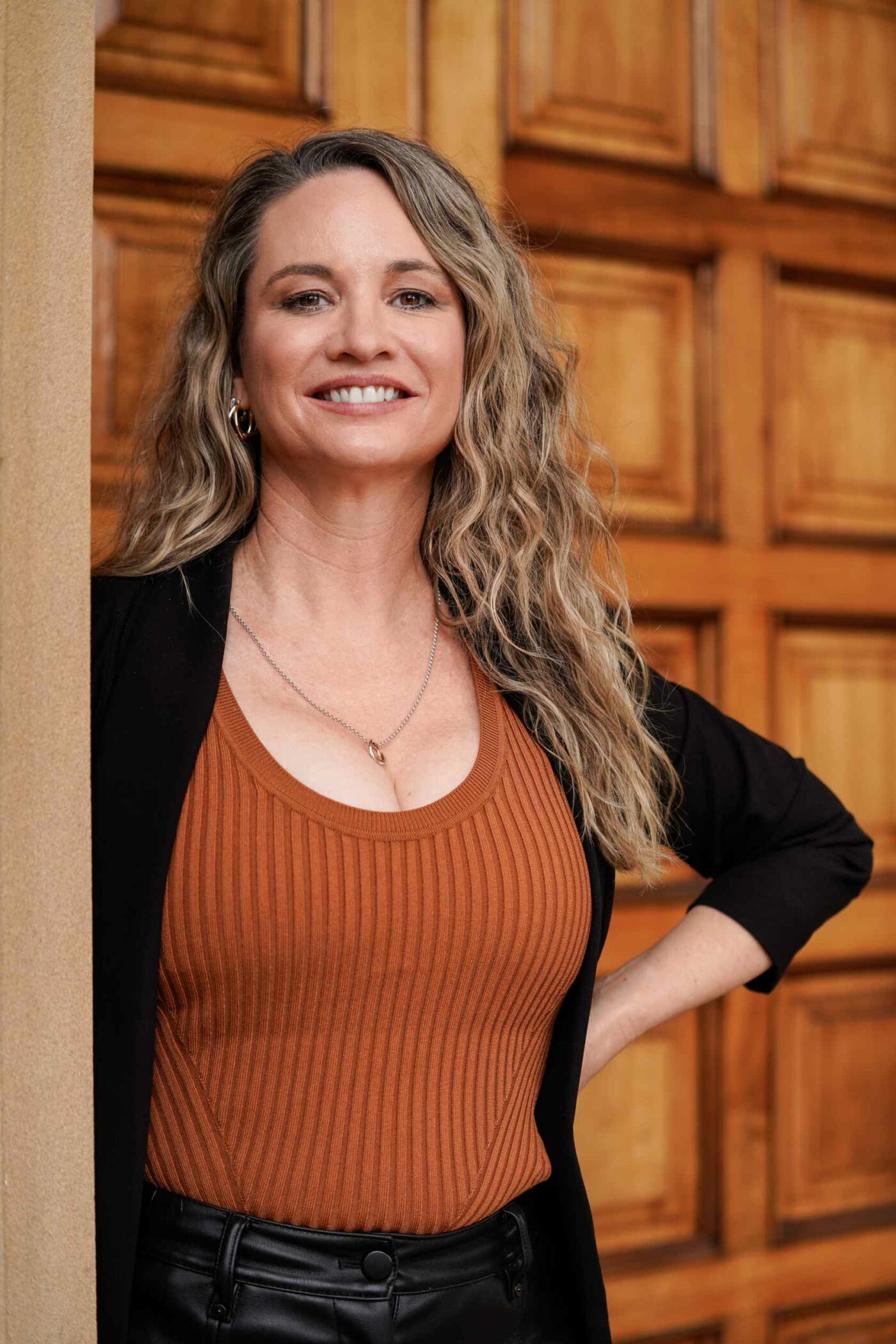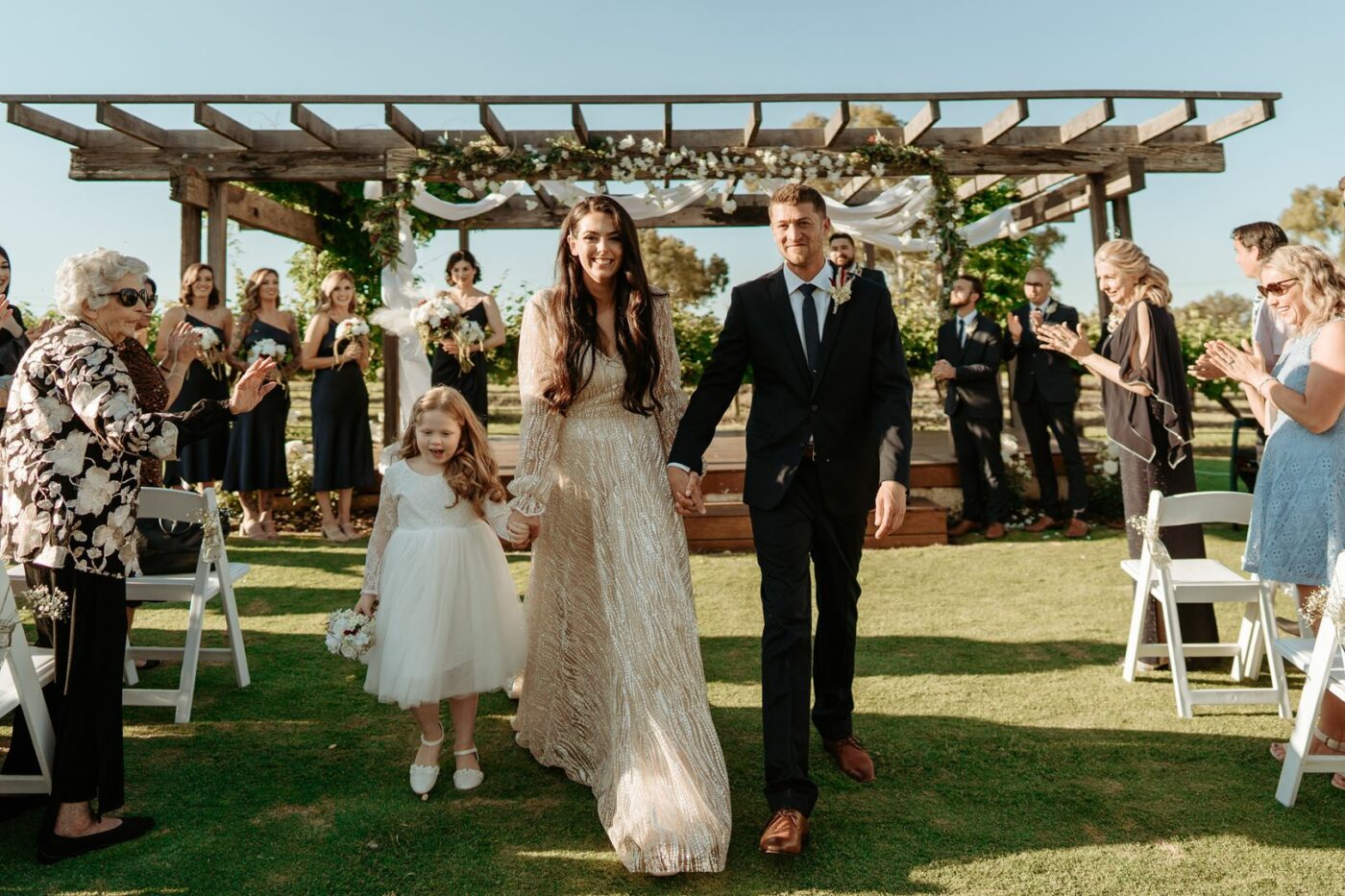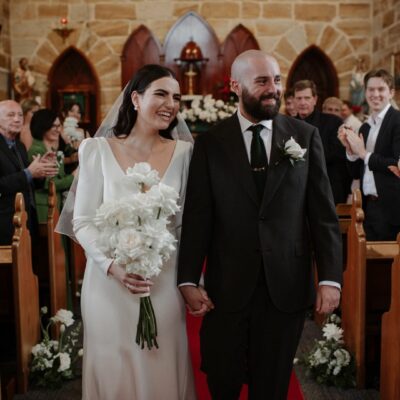 Our top wedding trends for 2026
Our top wedding trends for 2026
Money talks, and so should you: Expert wedding budget advice with Christine Lusher
When you’re engaged, it’s easy to get swept up in flowers, menus, and table styling. But according to financial advisor Christine Lusher, the smartest investment couples can make before walking down the aisle is in open conversations about money.
That’s right, we all know that money talks, and you should be talking money prior to exchanging vows.
Christine will be speaking at Unveiled on planning a wedding with your future in mind. She’ll also delve into why 12 dozen roses are just as romantic as financial openness.

Financial expert Christine Lusher will be sharing her wisdom at next month’s Unveiled.
How can couples plan for their wedding day without sabotaging bigger life goals?
It can be hard to see the forest through the trees when wedding planning. You’ve been told for your whole life that this is the most important day of your life. But here’s the cold, hard truth: Your wedding is one day and your financial life together is decades.
“The most successful marriages start with open and honest discussions about money long before walking down the aisle,” explains Christine. “This means being clear on where the wedding money is coming from and how much you can realistically afford.”
For Christine, a practical approach works. Mapping out short, medium, and long-term goals and then putting a cost next to each.
“This applies to both your wedding and your bigger life plans, whether that’s saving for a home deposit, a holiday, or starting a family,” says Christine.
Breaking those costs down into monthly savings targets makes the trade-offs clear. That way, you’re not just cutting costs, you’re making conscious choices about what matters most.
Couples who frame their wedding budget around the bigger picture tend to avoid both blowouts and blow-ups. It’s not about dampening excitement; it’s about making sure the party doesn’t derail the future.

Join Christine Lusher at Unveiled on 21 September 2025.
How can we figure out our Financial Independence Figure (FIF), and should this come before the wedding?
You don’t need to be calculating million-dollar targets while choosing your wedding cake. Start by knowing your everyday living costs, this will be the baseline for all your financial goals.
As Christine explains, the “Financial Independence Figure” is the amount you’d eventually need invested to live comfortably without having to work. It’s not the most important number for today, but it reminds you that financial freedom is built on habits.
Creating habits will be about shifting your thinking. Instead of consider “wedding at all costs”, ask yourself: What does it cost us to live today? What do we need to set aside for the future? And how much can we comfortably allocate to the wedding within that.
The result: a wedding that celebrates your love without derailing the life you’re building together.
Joint finances are tricky. What habits make the biggest difference?
There is a common misconception that money stress comes from not earning enough. It’s actually from couples not being open. The smartest first step couples can take is agreeing on how money will work between them.
Christine suggests setting up a bank account system that separates essentials, lifestyle spending, personal independence, and future goals. For example:
- Everyday account (bills & essentials): rent, groceries, insurance, transport.
- Lifestyle account (joint fun money): dinners, weekends away, entertainment.
- Yours & mine accounts: individual spending money—no questions asked.
- Future goals account: home deposit, holidays, emergency fund.
- Wedding account: separate from daily living, so it’s easy to track.
It’s important to understand that fair doesn’t mean 50/50. Incomes will often differ, and a percentage-based contribution may feel more equitable.
Don’t overlook gendered costs. There is the “pink tax” on many everyday items: haircuts, skincare, contraception, and period care are recurring expenses that should be treated as household costs, not a personal splurge.
The golden rule? Keep talking. Schedule quarterly “money dates” to revisit your system and adjust as life changes.
Money mistakes: What faux pas do couples make during their engagement?
Overspending is the most obvious mistake to make. Set realistic goals and stick to them. But the other mistake that couples make is not using this time period to get financially aligned. Avoiding money conversations leaves room for hidden debt, mismatched values, or unspoken expectations.
The biggest mistake isn’t just overspending, it’s not using engagement as a chance to get financially aligned. Avoiding money conversations leaves room for hidden debt, mismatched values, or unspoken expectations.
Another trap is taking on debt for the wedding itself. High-interest loans and credit cards don’t disappear once the honeymoon’s over; they stick around, making it harder to start married life fresh.
Also, try not to get sucked into the Instagram effect. The picture-perfect weddings online are often heavily discounted or even sponsored. You won’t be able to replicate them like-for-like because it won’t be dollar-for-dollar.

Start your wedding planning with the same financial goal. Source: Sandalford Wines.
How can couples shift from a ‘wedding budget mindset’ to a ‘long-term wealth mindset’?
“The key is to treat your wedding as your first joint financial project, not the finish line. A budget isn’t just about keeping costs down for one day, it’s about making sure spending stays in line with what you’ve agreed on together,” Christine says.
She shares a simple trick: If you’ve been saving $500 a month into a wedding account, don’t stop once the big day is over. Keep the habit alive by redirecting it toward a home deposit, investments, or an emergency fund. That one move can transform short-term savings discipline into long-term wealth.
Finally, celebrate financial milestones the way you would anniversaries. Whether it’s paying off a debt, hitting a savings goal, or boosting your super contributions. Your wedding lasts a day, but the life you build together lasts a lifetime.
Give yourselves the gift of financial openness
Christine Lusher’s message is clear: the most valuable gift couples can give themselves isn’t on the registry; it’s financial openness. By talking early, budgeting smart, and keeping the long view in sight, you set yourselves up not just for a beautiful wedding, but for a strong, secure marriage.
Don’t miss out on your chance to learn even more from Christine and set yourselves up for success. Attend Unveiled on 21 September at Zinc. Fed Square.
 5 reasons you seriously can’t miss Unveiled
5 reasons you seriously can’t miss Unveiled  Our wedding planners answer your most asked questions
Our wedding planners answer your most asked questions